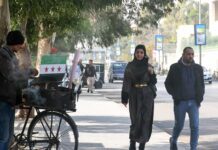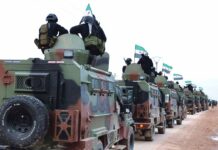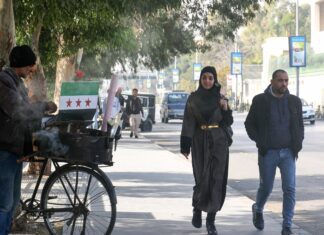
As tensions ease following the recent Israel-Iran conflict, new attention is turning toward the possibility of Israel reopening diplomatic channels with Syria. According to US Special Envoy to Syria Thomas Barrack, the regional shift presents a rare opening to revisit long-stalled talks between Jerusalem and Damascus, though major obstacles remain.
Washington Signals Support for Dialogue
In an interview with Turkey’s Anadolu Agency, Barrack said the war with Iran has created “an opportunity for all of us to say, ‘Stop, let’s build a new path.’” He noted that Israeli officials are quietly exploring a behind-the-scenes dialogue with the Syrian government, primarily focused on border security.
Barrack stressed that Syrian President Ahmad al-Sharaa “made it clear that he does not hate Israel, and that he wants peace on these borders.” While such statements signal a potential thaw in decades of hostility, Syrian officials have consistently maintained that any agreement must begin with Israel’s full withdrawal from occupied Syrian territory.
Damascus Demands Full Israeli Withdrawal
Syrian officials have reiterated that the government in Damascus will not consider any diplomatic initiative that falls short of restoring Syrian sovereignty over all occupied territory, including the entirety of the Golan Heights. President al-Sharaa’s administration has emphasized that no peace agreement is possible without a complete Israeli withdrawal, nor will Syria recognize any changes to its internationally recognized borders.
However, Israeli Foreign Minister Gideon Saar declared the Golan Heights are “non-negotiable.” He said, “We are interested in a real peace with our neighbors, but the Golan Heights will remain under Israeli sovereignty, and that is a settled matter.”
Sources cited by i24NEWS claimed that both sides are considering a “phased withdrawal” from territories Israel entered in late 2024, including Mount Hermon, as part of a proposed peace accord. The plan reportedly includes transforming parts of the Golan Heights into a demilitarized “peace garden.”
This position reflects long-standing UN Security Council resolutions and aligns with Syria’s rejection of partial or symbolic compromises. Syrian diplomats have pointed to Israel’s ongoing incursions into southern Quneitra and other border regions as violations of international law and of the 1974 Agreement on Disengagement.
UNDOF Role Under Discussion
In line with these concerns, both Damascus and UN officials have expressed interest in reestablishing the full presence and function of the UN Disengagement Observer Force (UNDOF). The peacekeeping mission, which has monitored the ceasefire line between Israel and Syria since 1974, has seen its effectiveness eroded in recent years due to Israeli military actions. Barrack acknowledged this effort, saying that regional actors must return to “agreed frameworks” if stability is to be restored.
While Barrack confirmed that informal discussions have begun, he acknowledged the challenges ahead. Israeli leaders remain publicly firm on their position that the Golan Heights will remain under Israeli sovereignty—a stance Syria categorically rejects.
Still, the US envoy framed the moment as an inflection point. “We have a chance to shift the trajectory,” he said. “It starts with direct, honest conversation—and respecting the lines drawn by international law.”








